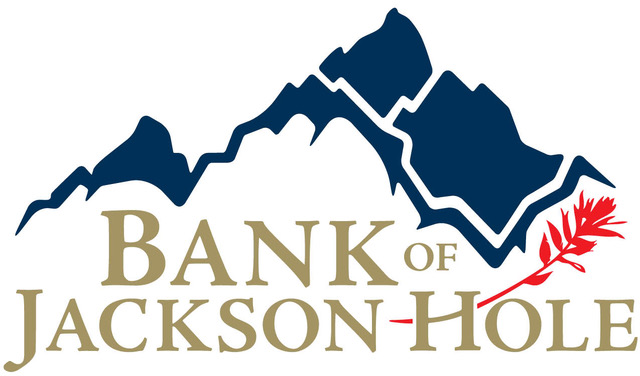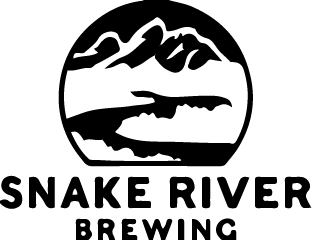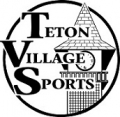Value of the Month: SPORTSMANSHIP
This value extends far beyond the Club and sport, and includes how we represent ourselves, our families, our teammates, and our Club no matter where we are. We are always fair, respectful, humble in victory, and gracious in defeat. We treat others (including volunteers and officials) the way we want to be treated. This value demands a commitment to zero tolerance for any form of discrimination, the elimination of gender stereotypes in sport, and fostering the safest and most effective environment for the social, emotional, and physical development of all participants.
How is each program showing SPORTSMANSHIP this month?
Student-athletes are leveraging sportsmanship as they continue into the thick of the season and gear up for championship season.
ALPINE
Although Alpine racing is an individual sport when it comes to results, it is essential for athletes to operate within a community. Throughout the season, athletes are encouraged to work together, including helping each other learn to take care of equipment and helping coaches set and pull the race course. The best sports push each other to perform at a higher level during training. While at races, athletes show sportsmanship when they inspect the course together and find places to shave time off their line. They help each other out by bringing down clothes for their teammates from the top of the course and sticking around to cheer each other on during their race runs. At the end of the race, they can go to the award ceremony, even if they didn’t do as well as they would have liked to. On the FIS team, athletes develop their sportsmanship muscles by playing card games on the road and playing hockey together. During team meetings, athletes are reminded to work as a team, treating each other like family, and by doing so, they can humbly achieve at a higher level together.
NORDIC
Sportsmanship and teamwork go hand in hand for Nordic athletes on their journey towards achieving seasonal outcome goals. It's the process of supporting and building other teammates up during long training days throughout the summer, hard interval sessions to find the next race pace gear during the competition period, and for the younger athletes, engaging in a fun yet competitive games approach to learning new skills. For the older athletes that don't achieve their individual outcome goals they are given a chance to process their experience, but then encouraged by the coaches and support staff to quickly put their personal hardships or perceived set-backs aside. Part of their mind-set training is to manage their expectations and eventually let go of any attachment to achieving that goal so they are still in a position to cheer on and lift their teammates up. Sportsmanship for Nordic athletes ultimately means that through the process of offering support and encouragement to their teammates, that the same support and energy will be reciprocated.
FREERIDE
In Freeskiing and riding, there are many opportunities to embody sportsmanship. It starts with snowboarders and skiers shredding together, pushing each other to try new tricks or stomp a new line in practice. At the competitions, athletes can inspect with their teammates to share ideas about how to pick creative lines and fresh tricks. After competing, athletes are encouraged to stay to cheer on their teammates and watch their runs. When the results, which are based on subjective judging, are in, it is essential for athletes to respect the judges scoring and opinions. They can go talk to the judges directly if there are concerns about results. They can show sportsmanship by going to the awards ceremony, even if they didn't do as well as they liked. Throughout the season, athletes can hold each other accountable by attending the Ski Patrol safety talk, learning the rules of the mountain and playing by them. They can also share knowledge and skills about how to take care of their equipment.
BACKCOUNTRY
In the Backcountry program, athletes are taught many of the hard skills necessary to be successful. It is essential for athletes to share knowledge with each other in order to develop healthy habits when skiing off piste. When there is a disagreement about what objective to ski, athletes must listen to the concerns of their partners and acknowledge them. When our group encounters others, they can collaborate on observations in order to develop a more holistic picture of the environmental conditions. There is an element of overcoming ego and working together that will help make our athletes better backcountry skiers and ambassadors.
~~~~~~~~~~~~
Alumni Spotlight: Morgan McGlashon on SPORTSMANSHIP
Mount Moran, Teton Range, Wyoming. Fredrik Marmsater Photography
-
This month’s value of the month is sportsmanship. How has this Club value influenced your ski career?
I had good relationships with my coaches at the Club. I trusted my coaches and had good friendships with them. They taught me that having a good attitude was more important than where I ended up on the results list and that having a good time was more valuable than being fast. This has made me a better sport in other parts of my life as well.
When I was a FIS athlete, I was the only girl in normal high school, so I had a lot of training time, just me and the coach, because everyone else was done training by the time I was done with school. One of the coaches would hang out and wait while I trained. I often went to races with just one coach or went skiing with (backcountry, village) in addition to racing. I would do poorly, then go ski pow with a coach and have a good time, despite not being that fast.
-
What are some of your favorite memories from your time as a JHSC Athlete?
The first time I ever skied Corbet’s, I was probably ten. We were supposed to race at Snow King, but it got cancelled, so one of our coaches took us to the Village. We wore tutus, beads, tiaras and race suits, and we skied Corbet’s for our first time. Even though we didn’t get to race that day, it was awesome.
-
How has being an athlete at JHSC influenced your trajectory in life?
Being a JHSC influenced my life crazily and in so many ways. I went to college thinking that I would ski race in college, but that was before I found Freeride Skiing. My interest in racing started to slowly fade through the end of high school. I quit ski racing and went to freeride comps instead. The Club definitely influenced me because I am obsessed with skiing and have directed my life around skiing. The Ski & Snowboard Club made me a confident, capable skier. When I attempt big objectives in the mountains, I never worry about the skiing part; I have to worry about everything else that’s difficult.
-
What is a challenge you encountered during your career as an athlete, and how did you overcome it?
Quitting ski racing was really hard for me. It felt like a really big deal. However, my background in racing made it easier to pursue competitive skiing in a different way that I enjoyed more. My ski career has gone from Alpine racing to Freeride skiing to mountaineering. Now, pursuing mountaineering and guiding is made easier by having the skills and confidence to pursue skiing in other ways. Deciding when to move on to the next phase of life is challenging no matter how old or young you are. It's cool to have skiing as a constant, even if the form is changing.
-
What’s one piece of advice you have for up and coming JHSC athletes?
Take advantage of all things the Club has to offer. Avy courses, friendships, coaches, skiing in the park. Don’t worry too much about results. I still have so many best friends from ski racing, but I couldn’t tell you what place I got at any races.
Freya Fennwood Photography
Bio
Morgan loves mountains: climbing them, skiing them, studying them. Her innate curiosity and quest for adventure has led her around the world where she has discovered deep snow, big rocks, and lively people. Her younger years were defined by spandex and blue ice amongst a gaggle of ski racers, but she was always happiest on the weekends skiing the steep trees and iconic cliffs that make up Jackson Hole. Morgan is the youngest female to ski the Grand Teton, has competed on the Freeskiing World Tour, and has many ski descents in the Tetons, the Andes, the Cascades, the Selkirks, and the Alps.

























































